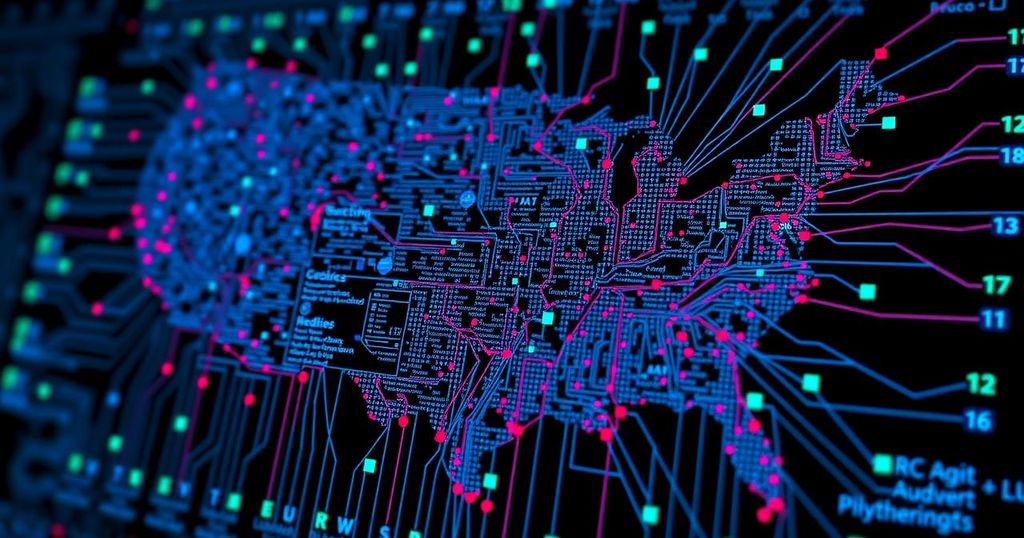Iranian Hackers Target U.S. Election Websites Amid Concerns of Foreign Interference
Microsoft has reported that Iranian hackers are probing U.S. election websites for vulnerabilities, potentially to influence the 2024 presidential election. While no actual hacks have occurred, U.S. intelligence is concerned about the implications of these activities in the broader context of foreign interference during elections. Previous actions by these hackers have included voter intimidation efforts and disinformation campaigns, signaling a pattern of election-related cyber threats from Iran, Russia, and China.
Recent analyses by Microsoft have revealed that Iranian government-linked hackers have been actively probing election-related websites in various key swing states within the United States. This activity, noted for its timing in April, raises concerns about potential attempts to exploit vulnerabilities that could influence the upcoming presidential election. Although the reconnaissance efforts have been monitored by several federal agencies, there have been no indications that they escalated to actual hacking attempts that might compromise the integrity of voting processes. However, the activity is part of a broader pattern of foreign interference, predominantly from Iranian, Russian, and Chinese groups, who are attempting to sow discord and create doubt among American voters regarding the electoral process. Microsoft attributed this infiltration to a hacking group referred to as “Cotton Sandstorm,” which is observed to be aligned with Iran’s Islamic Revolutionary Guard Corps (IRGC). Their activities include not only examining election infrastructure but also monitoring significant U.S. media outlets. US intelligence agencies anticipate an uptick in such activities as the election date approaches, owing to the hackers’ established history of election meddling. Concerns have risen particularly because this group previously engaged in deceptive activities during the 2020 election by impersonating right-wing factions to intimidate voters. In addition to probing for vulnerabilities, there are fears that if voter registration data were exploited publicly, it could amplify fears regarding election security among American citizens.
The heightened scrutiny of cybersecurity threats from foreign actors, particularly in the context of U.S. elections, underscores the ongoing battle against disinformation and direct interference. Recent assessments by intelligence agencies indicate that nations such as Iran, Russia, and China are looking to disrupt the electoral process, not just through direct actions like hacking but also by fostering disinformation campaigns intended to create unrest and distrust among voters. The IRGC, in particular, has shown a propensity for such tactics, of which the recent probing of election websites is a continuation. As the nation approaches the 2024 elections, awareness and preparedness against these tactics are crucial for maintaining democratic integrity.
In conclusion, the surveillance of U.S. election-related websites by Iranian-linked hackers represents a significant aspect of the evolving threat landscape surrounding elections. While the integrity of the voting process remains intact due to existing safeguards, there is an increasing need for vigilance against potential disinformation and cyber threats aimed at influencing American perceptions of democracy. As experts predict a growth in such activities leading up to the elections, educating voters about the nature of these threats is essential for preserving electoral integrity and public trust.
Original Source: www.cnn.com




Post Comment